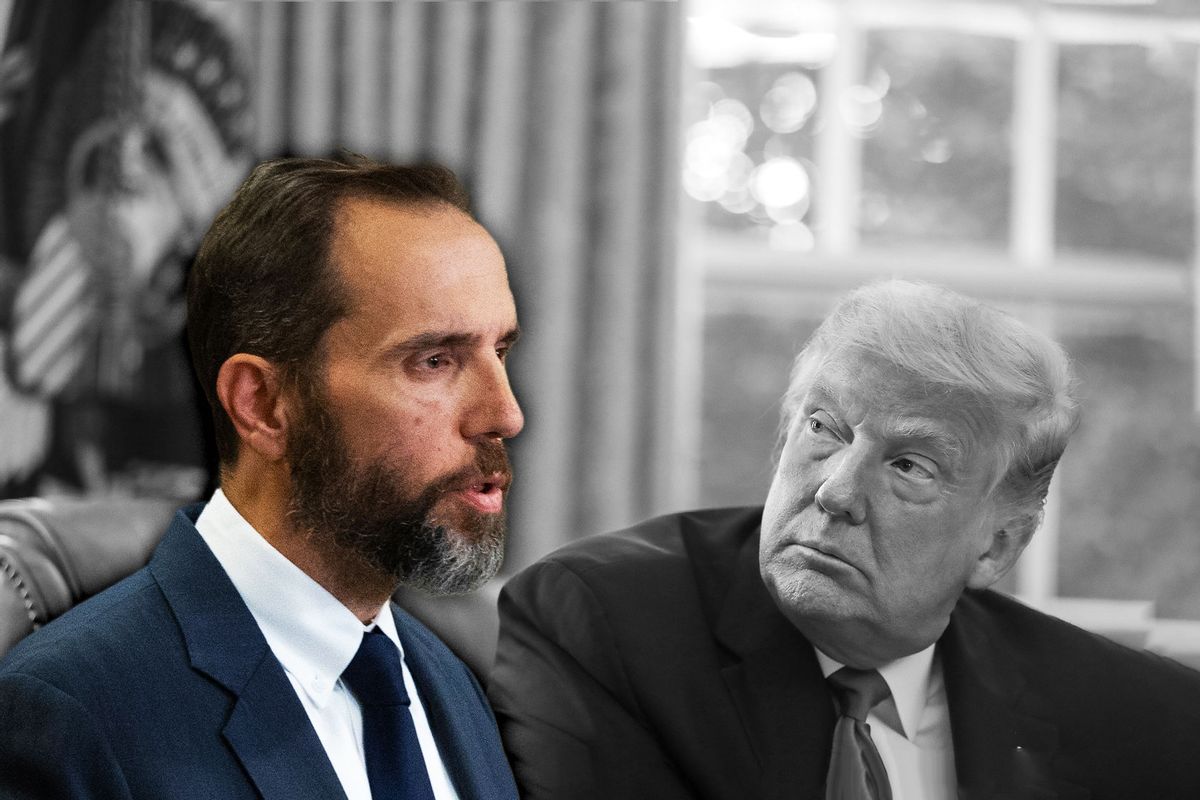In its immunity ruling, the Supreme Court’s six right-wing justices asserted that a president’s “official” conduct was off limits to prosecutors, meaning that someone — Donald Trump, for example — could order their underlings at the Department of Justice to break the law, perhaps by trying to overturn what they knew to be a free and fair election, and no one could ever charge them with a crime.
That July ruling from the nation’s highest court was seen as a death knell for the cases against the former president, the conservative majority having effectively legalized “criminal and treasonous acts,” per liberal dissenter Justice Sonia Sotomayor. The consolation was that special counsel Jack Smith would at least get to air all his evidence in the D.C. court of U.S. District Judge Tanya Chutkan, an appointee of former President Barack Obama who would get to decide what if any of it could withstand the Supreme Court’s novel new standard.
But Smith, who has charged the former president with conspiring to defraud the United States and obstruct the certification of the 2020 election, himself decided to start over instead. Having seated a new grand jury, on Tuesday Smith returned a fresh 36-page indictment of Trump that maintains the same core charges but with a freshly emphasized framing: these were criminal acts that the former president undertook not in his official capacity but as a private citizen running for public office.
“Even the very first paragraph of the indictment now refers to Donald Trump not as the 45th president of the United States, but as a candidate for president in 2020,” noted Barbara McQuade, a former U.S. attorney who teaches law at the University of Michigan. Appearing on MSNBC, she predicted that Trump’s legal team would certainly maintain anything he did while president was an “official act.”
But McQuade argued that Smith had effectively purged the original 45-page indictment of any conspicuously official conduct, the special counsel now stressing, for example, that Trump’s speech on January 6, 2021, was at a privately funded campaign event — and that the ex-president, whose legal team organized a plot to recognize “fake electors” from the likes of Arizona and Pennsylvania, never had an official role in certifying state elections.
“I think this threads the needle,” Ty Cobb, a former White House lawyer under Trump, told CNN, describing the new indictment as a “forceful document” that drives home “the crimes that Donald Trump actually committed.” Smith wisely chose to avoid the moral victory of what legal experts had termed a “mini trial,” publicly fighting over what could survive in the previous indictment, Cobb said. But that also guarantees that there won’t be any sort of trial before voters cast ballots in the presidential election.
“It’ll be slow from here,” Cobb conceded. There “will be a lot of delaying tactics by his lawyers,” he said, but then the case was never likely to go to trial before November.
We need your help to stay independent
By paring down the original indictment, Smith has also made it more likely the case goes to trial, ever.
Appeals by Trump’s defense team could ultimately land the case before a sympathetic Supreme Court majority, which may well decide to expand its definition of official conduct, but Smith at least removed the most obviously now-problematic allegations: namely, that Trump and conspired with a Justice Department lackey, Jeffrey Clark, “to use the Justice Department to open sham election crime investigations and influence state legislatures with knowingly false claims of election fraud.” Since such conduct is apparently now above board for presidents, it’s nixed from the latest indictment, even if the underlying charges remain the same.
Norm Eisen, a senior fellow at the Brookings Institution and a legal analyst at CNN, said “the subtractions stand out more than the additions” in Smith’s latest filing. But in light of the Supreme Court’s decision, those subtractions make the case that much stronger.
“I don’t think that you can quibble with Smith’s effort to slim this indictment down,” Eisen said. “I do think he has a strong hand — and he’s played it.”
Read more
about Trump's criminal cases



Shares